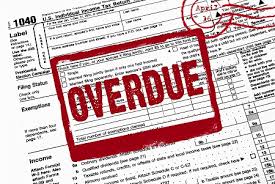It has been reported that fewer people have filed their tax returns this year at this time when compared with last year. The new Tax Cuts and Jobs Act has been cited as the reason, as it is taking some time for both taxpayers and preparers to adjust to the changes that were made. For those who have yet to file their returns, the deadline to do that this year is April 15th. Taxpayers that cannot meet the deadline can file for a six-month extension with Form 4868.
Please note that the IRS always recommends that taxpayers file their return, even if they cannot pay everything that is owed by the due date. Below is a summary of penalties that can be enforced by those who do not meet the deadline:
Failure to file
If someone does not file their tax return on time, the penalty is five percent of the unpaid taxes for each month that a return is late. The penalty begins to accumulate the day after returns are due – up to a maximum of 25 percent of your unpaid taxes.
When a return is filed more than sixty days after the deadline, it is subject to a minimum late filing penalty that is the lesser of either 100 percent of the tax that was not paid on time, or a specific dollar amount ($210 for tax returns due between 1/1/2018 and 12/31/2019).
The penalty applies for a full month, even if it is less than 30 days late.
Failure to pay
If someone fails to pay their taxes by April 15th, the penalty is one-half percent of the taxes that are not paid.
The penalty is weighed each month after the due date until the bill is paid or the levy reaches 25 percent of unpaid taxes.
Even if someone requests an extension, that does not give them an extension to pay taxes. A taxpayer is still liable for penalties if they do not pay an estimate of at least 90 percent of their tax liability by April 15th.
Failure to pay proper estimated tax
This penalty applies to people who did not pay a sufficient amount in taxes throughout the year. Taxpayers that expect to have a tax liability of $1,000 or more at the end of the year are supposed to make quarterly estimated tax payments unless either 90 percent of their current tax liability or 100 percent of their prior year tax liability (110% for higher income taxpayers) are covered through withholdings.
This year, the IRS will waive this penalty for more people if their payments fell short in 2018. The waiver applies to taxpayers whose total withholding and estimated tax payments are at least 85 percent of the total taxes they owe. The reason for the relief is because calculations were more likely to be inaccurate in 2018 as a result of the new tax law and withholding structure that left many taxpayers with not enough paid in.




